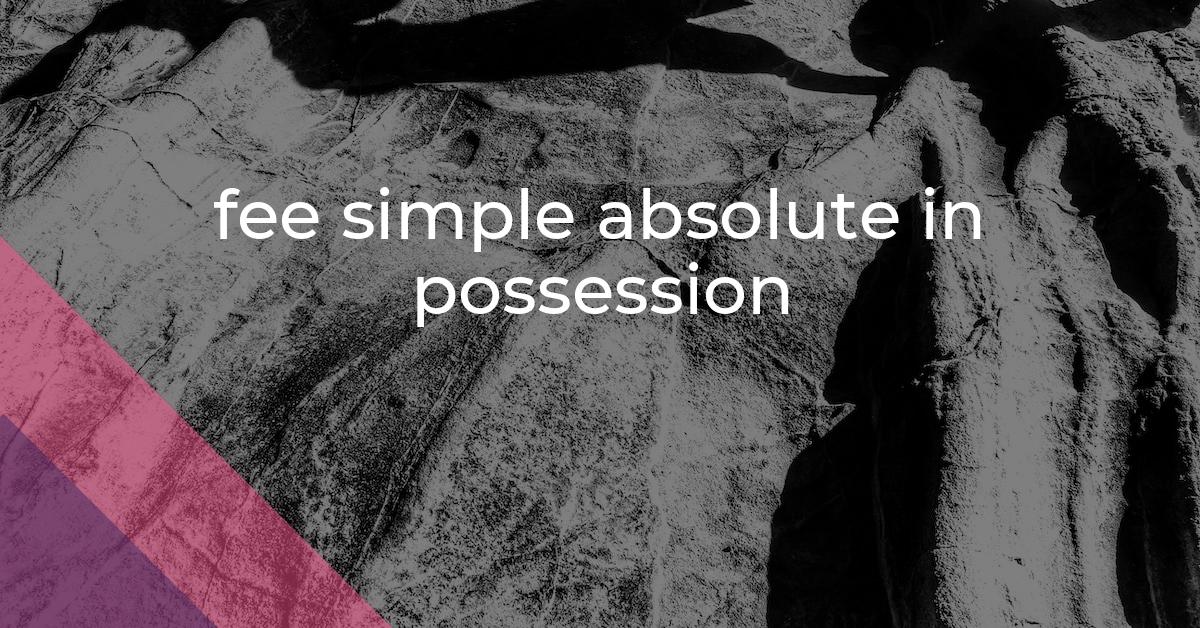fee simple absolute in possession: Idiom Meaning and Origin
What does ‘fee simple absolute in possession’ mean?
The idiom "fee simple absolute in possession" refers to an ownership interest in real property that grants the owner complete control and rights without any limitations or conditions.

Idiom Explorer
The Epitome of Ownership
Fee simple absolute in possession is an idiomatic expression that pertains to real estate law. It represents the highest form of property ownership that an individual can possess. This idiom signifies an individual’s complete and unrestricted ownership of a property, without any limitations or conditions. Interestingly, the term “fee” in this context does not refer to a monetary fee, but rather has its origins in the old English word “feh”, which meant cattle or livestock.
This idiom consists of four distinct parts that each contribute to its overall meaning. The first part, “in fee”, refers to complete ownership. The second part, “as if someone owns the place”, indicates that there are no restrictions or conditions placed upon the ownership. The third part, "like someone owns the place", emphasizes the total and unconditional control the individual possesses over the property. Lastly, the fourth part, “in possession”, reinforces the idea that the individual has actual and physical control of the property, rather than a mere legal right or claim.
Origins of the term “fee simple absolute in possession” can be traced back to medieval England and France, where feudalism was prevalent. The concept of land ownership was intertwined with social hierarchies, and ownership of land was often tied to various obligations and duties owed to a higher-ranking lord. However, fee simple absolute in possession emerged as a form of ownership that granted individuals maximum control and independence.
In relation to modern-day real estate law in the United States, fee simple absolute in possession refers to the most complete and unencumbered form of property ownership. It indicates that the owner has the right to possess, sell, lease, or use the property in any manner they wish, as long as it is within the legal boundaries and regulations of local jurisdictions. This form of ownership also allows for the passing down of the property through inheritance, enabling future generations to continue enjoying the benefits of fee simple absolute in possession.
While fee simple absolute in possession is clear in its meaning and usage, it is worth noting that other forms of property ownership exist, such as life estates, conditional fees, and leaseholds. Each of these forms differs in their limitations and restrictions on ownership rights.
Fee simple absolute in possession represents the pinnacle of property ownership. It provides individuals with complete and unrestricted control over their real estate. Its origins can be traced back to medieval Europe, and it continues to serve as a fundamental concept in modern real estate law. Understanding this idiom allows individuals to grasp the extent of their rights as property owners and appreciate the historical context that shaped these concepts.
Example usage
Examples of how the idiom "fee simple absolute in possession" can be used in a sentence:
- He inherited the property and now has fee simple absolute in possession.
- The title to the land is transferred to the new owner with fee simple absolute in possession.
- She purchased a house and became the owner with fee simple absolute in possession.
The idiom "fee simple absolute in possession" is often used in the context of property ownership and refers to the highest form of property ownership, where the owner has complete and unrestricted rights to use and dispose of the property. It signifies full ownership without any conditions, limitations, or restrictions.
More "Property" idioms
We missed the mark - nothing found.



